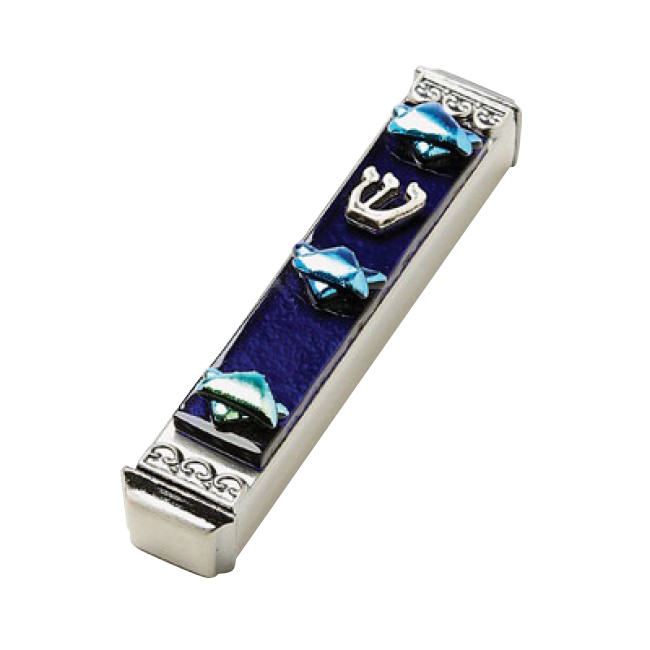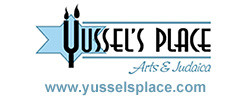 How many answers to these questions about Judaism and Jewish history do you know?
How many answers to these questions about Judaism and Jewish history do you know?
How many meals are traditionally eaten on the Sabbath?
3. Each meal should be eaten with bread. Only the first two of the meals have kiddush with them.
The system of 'Jewish Numerology', i.e. assigning number values to letters, is called?
Gematria. Gematria comes from the Greek - Gamma - tria or 'Gamma (3rd letter in greek alphabet) is three'.
How many mitzvot, or commandments, are there in the Torah?
There are 613 Mitzvot (literally, commandments) in the Torah. The 'Ten Commandments' are, more accurately, 'Ten Statements', or 'Aseres HaDibros', in Hebrew.
What kind of belt is customarily worn by Chasidim (and a few non-Chasidim) during prayer?
Gartel. A gartel is a black cloth belt with tassels on the end that is wrapped around the midsection.
What Jewish holiday is not mentioned in the Tanach (Jewish Bible)?
Hanukkah. Purim is found in Esther. The rest are found in the Pentateuch (Chumash). Only Hanukkah was created after the Tanach (Bible) was completed.
How many rabbis were in the Sanhedrin?
71. The Sanhedrin was the chief court of law. It was based in the Temple and was comprised of 71 rabbis.
What day is the last day of Hanukkah (Hint: It starts on 25th Kislev)?
2nd or 3rd of Teves. This can be figured out by knowing that a) Hanukkah has 8 days b) Kislev has either 29 or 30 days.
How many Jewish holidays are there in the Hebrew month of Tishrei (in Israel)?
5. They are- Rosh Hashana, Tzom Gedaliah, Yom Kippur, Sukkot, and Shmini Atezret. Outside Israel, Simchat Torah and Shmini Atezret are on separate days while in Israel, they are on the same day.
What is the Hebrew word for Jews who came from Central European lands?
Ashkenazim. Ashkenaz is an old Hebrew word referring to Germany (modern Hebrew: Germania). Ashkenazim now comprise about 80 percent of world Jewry.
The Western Wall was a part of which Temple area?
Second Temple. It was built as a retaining wall for the Second Temple by King Herod.
How many scrolls of parchment are there in a pair of tefilin (phylacteries)?
5. There are four in the 'shel rosh' and one in the 'shel yad' making five.
How many different kinds of 'leaves' are taken by Jews as an observance of the holiday of Sukos (i.e. the 'Arba Minim')?
3. This was another trick. There are four species taken, but only three of them are 'leaves'. There is the lulav (palm frond), hadas (myrtle), aravah (type of willow), and the esrog (citron), a lemon like fruit but definitely not a 'leaf'. Collectively, they are the 'Arbah Minim' or the 'Four Kinds'.
Which holiday falls out on the 50th day starting from the first day of Pesach (Passover)?
None.
What blessing (blessings, actually) are said over wine to usher in the Sabbath or a holiday?
Kiddush.
Which king built the first temple?
Solomon
In what city were the patriarchs and matriarchs buried?
Hebron. They are buried in the cave of Machpela.
On what day of a male baby 's life does a bris (circumcision) take place?
Eighth.
Who started Chasidus (Hasidism)?
Rabbi Yisrael Baal Shem Tov. He was called the 'Baal Shem Tov' (or Besht in its acronym form) which means 'Master of the Good Name'.
What is the Yiddish name for the skullcap that religious Jewish males wear?
Yarmulke. Kipa is the Hebrew word for it. A Shreimel and spodek are two kinds of fur 'hats' that various chasidim wear.
Is the modern state of Israel based on the boundaries described in the Torah?
No. If the current state of Israel was set to proportion in the Torah, many more people would oppose the created state. It would expand through Jordan all the way to Iraq, as well as take possession of much of Lebanon and parts of Egypt.
How many books are there in the Torah?
5. The five books of the Torah are:
Genesis (Bereshit: "In the beginning...")
Exodus (Shemot: "Names")
Leviticus (Vayyiqra: "And he called...")
Numbers (Bammidbar: "In the desert...")
Deuteronomy (Devarim: "Words", or "Discourses")
Which holiday does not permit the eating of leavened bread and its products?
Passover. Passover does not permit eating bread that has risen and had time to rise, in order to recreate the bread of affliction the Jews ate while fleeing Egypt. The bread, during the passover story, did not have time to rise because Pharaoh had changed his mind many times. Tarza, an unfermented bread, is permitted because it does not rise.
What type of religion is Judaism?
Monotheism. Judaism is a Monotheistic religion, which means that we only believe in one god. Judaism is considered the first or one of the first Monotheistic religions. The word stems from two roots of "Mono" meaning one and "Theism" meaning belief in god.
What prophet's name is recited during the Pesach (Passover) Seder and after Havdallah?
Elijah. Elijah the prophet has a very interesting story. After many perils, he ascended from life in a "pillar of fire." His name is mentioned in Eliyahu Hanavi, after Havdallah, and during the Pesach Seder we sing the same song and open the door for him. We also have Elijah's cup of wine on the table. Elijah also has a special place in the 'brit milah', the circumcision of all male Jews.
In how many days, according to the Torah, did God create the world?
6 days. The Torah says in Genesis 2:1, "And God stopped working in the sixth day of His creation, and He rested in the seventh day from all the work of creation." Many celebrate this day, which is also known as the Sabbath or Shabat, by resting, in a similar manner to God.
The Spanish word for Saturday is "sábado," which means Shabbat, yet the day of rest is celebrated on Sunday, a precaution made by the Spanish who did not want Jews to practice the Sabbath privately.
At what age does an Orthodox Jewish girl have her Bat Mitzvah?
12. Even though some other forms of Judaism celebrate the coming of age of women to be at 13, Orthodox Jews consider that to be really for men. At the age of 12 Jewish women are considered adults. In olden days Jewish girls were often married at the time of their Bat Mitzvah, because that was considered the age of maturity.
What is the meaning of the Hebrew word "bracha"?
Blessing. We say "brachot" (the plural of "bracha") before and after eating, before doing mitzvot, during prayer, and many other times throughout the day. There are multiple ways to say God. House is translated as "bayit", and a commandment is a "mitzvah". "Bracha" is a very important Hebrew word to know!
At which time would it NOT be appropriate to say the blessing of "Shehechiyanu"?
When making Kiddush on Friday night. "Shehechiyanu" is a blessing that is said when you do something for the first time, or for the first time in a while. Some people say shehechiyanu when wearing new clothing. When sitting in a sukkah we say shehechiyanu because we haven't done it in a year. The same thing applies to Hanukkah candles. However, we make Kiddush every Friday night, therefore it is not something to which this blessing applies.
What is the most commonly used name in Judaism for God?
Hashem. Hashem comes from the Hebrew word "HaShaim", meaning, "the name". We do not normally refer to God by his actual name unless in prayer, because it is so holy. There are many different names of God, all relating to different traits. Hashem is the name we use when referring to God indirectly, to preserve the holiness of His name.
What event reduced the duties of Cohanim in the field of religion?
The destruction of the Second Temple. The destruction of the Second Temple in 70CE meant the Jews lost their seat of religion, and as a result the many duties associated with the Temple which were restricted to Cohanim no longer existed. Depending on how orthodox the particular movement is some specific religious rites are still assigned to Cohanim, but are not
Yussel's Place is YOUR place for Jewish and Judaica gifts for all occasions and holidays. Rosh Hashanah, Passover, Yom Kippur, Purim, Chanukah, Bar Mitzvahs, Bat Mitzvahs, and many more.
